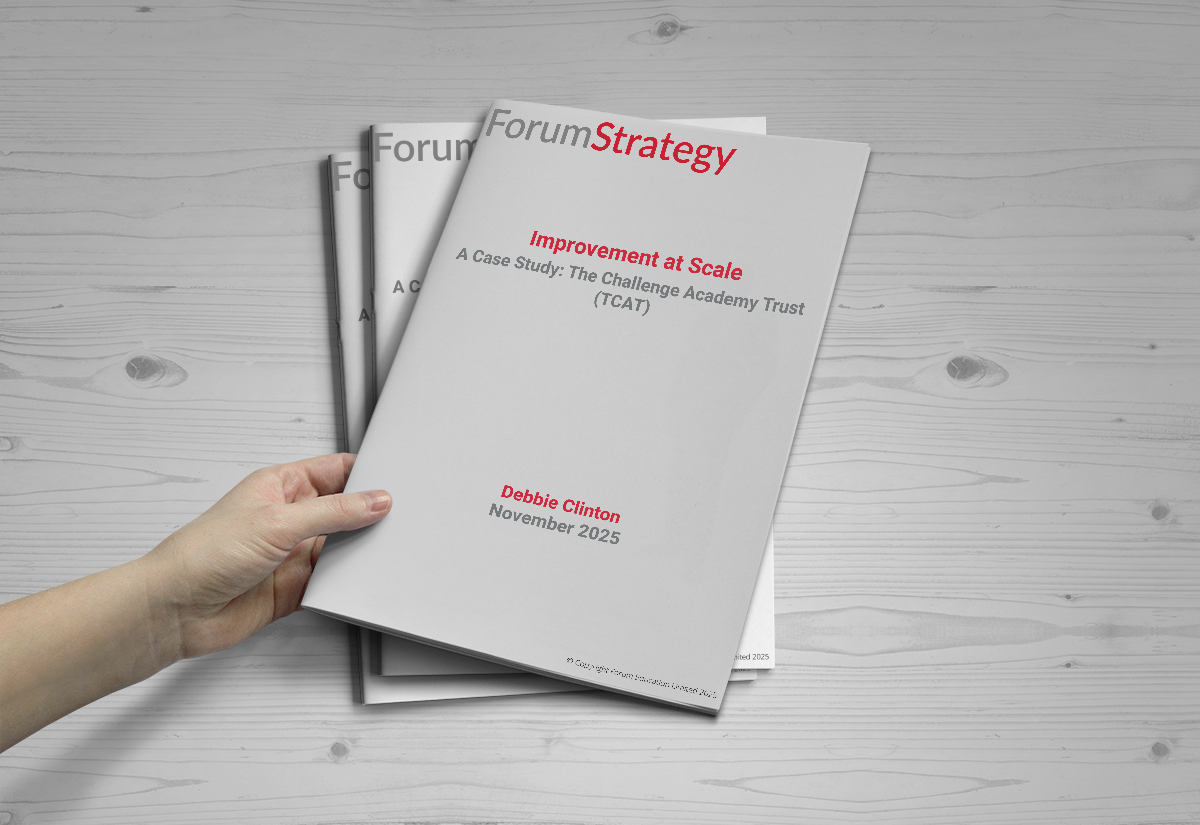“A team is only as strong as its weakest link. Lift each other up…Stay focused on your goals and don’t let distractions derail you” (Gareth Southgate – Professional footballer and Men’s Football England Team Manager, 2016-2024)
In this series of case studies of improvement at scale in academy trusts, we use the long-standing 7 Pillars of Improvement at Scale (Pain, 2019) model to reflect on how academy trusts are effectively delivering their core business – that of secure, sustained school improvement at scale. This model challenges trust leaders to think beyond the standardised accountability and regulatory measures – never ignoring them, but ensuring they go further than those often rather narrow, short-term metrics when assessing school improvement impact. The 7 pillars of improvement at scale are:
- Vision for quality improvement
- Capacity
- Collective Commitment
- Robust and real-time data
- Robust processes and project management
- Disciplined innovation and cutting-edge practice
- Quality assurance
In this series we are case studying several trusts using the pillars as a guiding structure. In this case study, we consider how the pillars are used at The Challenge Academy Trust (TCAT), a cross-phase, growing multi academy trust of 14 schools based in a tight geographic locale across Warrington, St Helens and the Wirral. The schools within the trust are a mixed group of faith (Church of England) and secular designation; they include primary schools, secondary schools and a post-16 college. TCAT’s mission is very clear and widely shared: ‘[They] are committed to improving outcomes for young people from nursery through to post-16 education. [Their] mission is to serve, challenge and empower the educational community. [They] enact [their] mission by providing a highly effective service to [their] academies, supporting strong leadership, investing in the workforce and inspiring children and young people.’
See the full case study by logging in and/or clicking download below.

